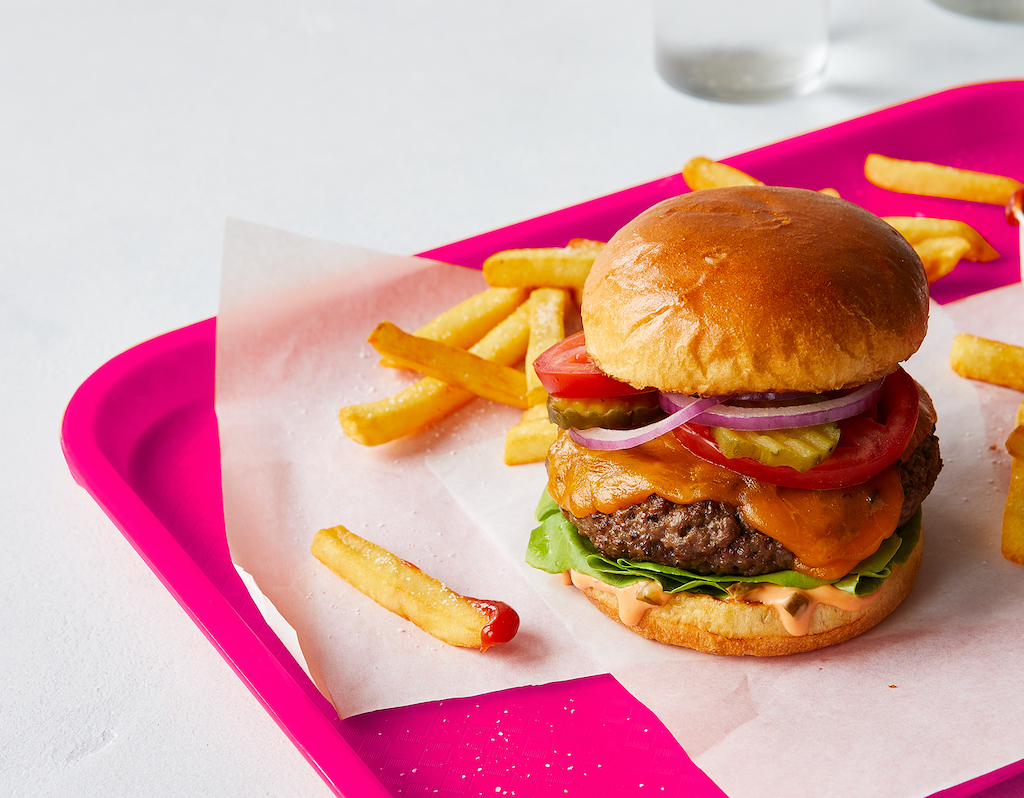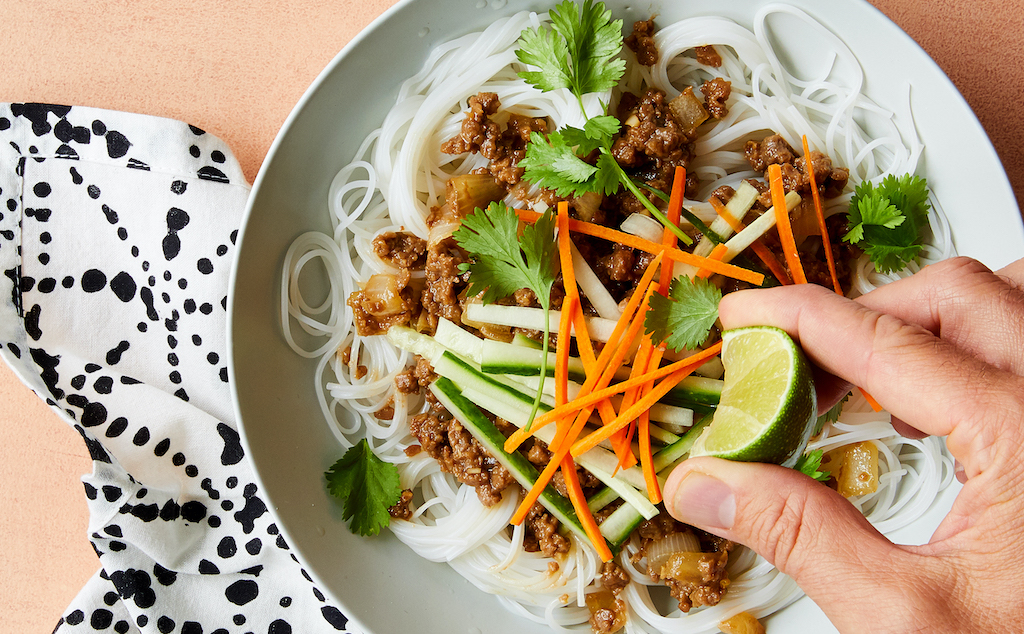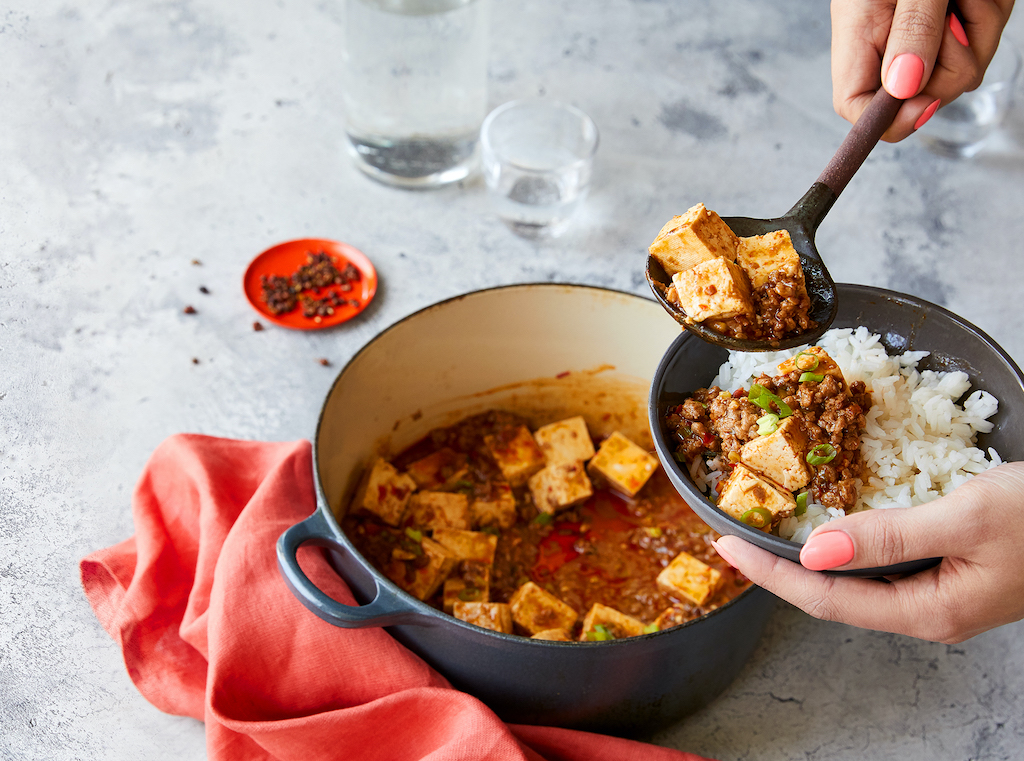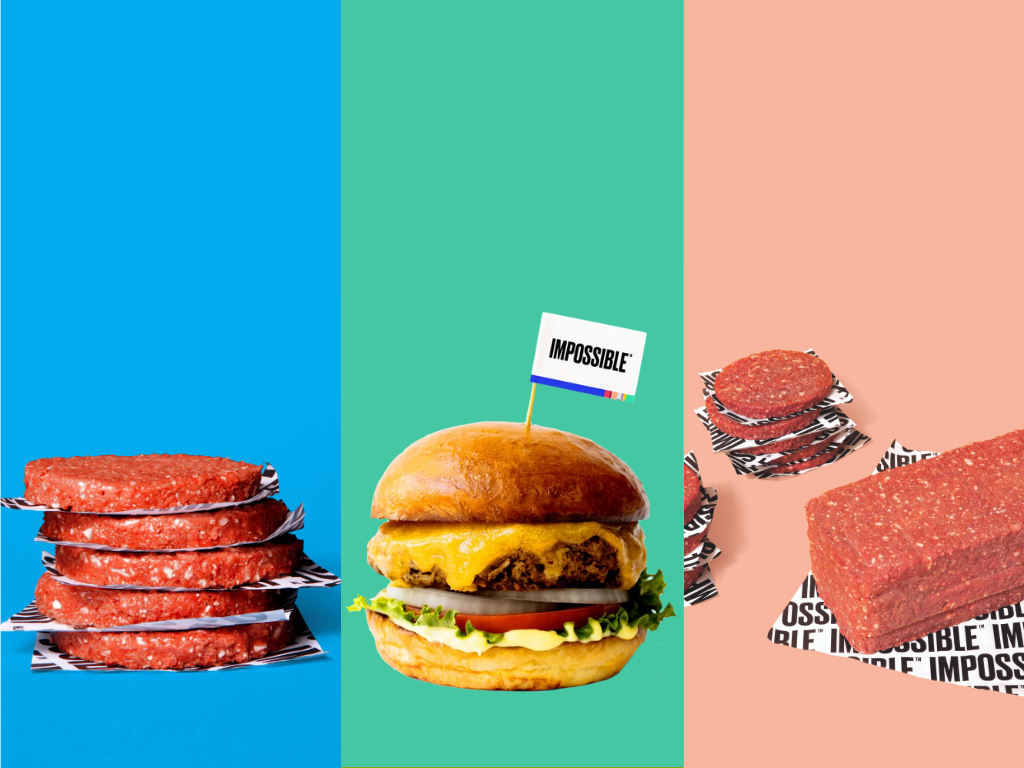3 Mins Read
Impossible Foods, the Silicon Valley-based food tech famous for its plant-based “bleeding” burgers, has just launched a new initiative in Hong Kong to allow its restaurant partners to resell its plant-based meat to consumers. It comes amid the city’s third wave of coronavirus infections, which has led to weeks of dine-in restrictions, and marks the first time Hong Kong consumers will be able to cook Impossible’s products at home.
Announced on Monday (August 17), Impossible Foods has green-lighted an initiative to support its restaurant partners by allowing them to resell their inventory of its famous Impossible Burger directly to their customers. It will be available in 10-patty packs and the 5-pound bulk package via online order (some outlets may offer pre-order for pick-up) from a number of local restaurants, including The Coffee Academics, CRFT PIT, Gafell and The Butchers Club.
Each restaurant partner will be retailing the items at a slightly different rate, with prices for the 10-patty pack ranging between HK$308-348 and HK$496-578 for the 5-pound bulk size. The move marks the first time that Hong Kong consumers will be able to cook dishes using the food tech’s heme-filled plant-based meats in the comfort of their own kitchens.

For now, the collaboration between Impossible Foods and local restaurant partners will be on a limited-time basis, with the goal of the initiative being to support foodservice outlets with an added revenue stream during Hong Kong’s third wave of coronavirus cases.
The Covid-19 crisis has been incredibly challenging globally for our partners in the restaurant industry.
Nick Halla, SVP of International at Impossible Foods
Read: Q&A with Impossible Foods’ Nick Halla
Since late July, evening dine-in services in the city have been put on hold, while normal day-time service must operate at limited capacity and seating restricted to two persons per table, in accordance to government social distancing regulations.
“The Covid-19 crisis has been incredibly challenging globally for our partners in the restaurant industry,” said Nick Halla, senior vice president of international at Impossible Foods.

“In Singapore, participating restaurant partners saw an average increase of 88% in total sales within the first month with more than half of this coming from direct-to-consumer sales of Impossible Burger,” added Halla, referring to the same initiative Impossible Foods rolled out during Singapore’s lockdown back in May.
“I love making tacos, or grilling burgers is always great,” said Halla, when asked about some of his personal favourite dishes to cook using Impossible meat. “I don’t cook enough Asian cuisine. Mostly Mexican, Italian, and burgers,” he told Green Queen.
As the pandemic lingers, Impossible has been making significant inroads into direct-to-consumer retail as well as making its products more accessible to consumers to cook at home. Earlier in June, the food tech launched its first direct-to-consumer website where customers can order bulk-sized packages for delivery to their doors.

Soon after, Impossible landed on the shelves of Walmart, the biggest retailer in their domestic U.S. retail market, growing its point-of-sales to over 8,000 outlets nationwide.
Hoping to help consumers get inspired to cook their own Impossible meals at home during the pandemic, the startup has launched a new plant-based Impossible Cookbook containing recipes from renowned chefs including Traci Des Jardins and Brad Farmerie who have used Impossible’s meat analogues.
Want more news on Impossible Foods? Read our earlier coverage here & check out more plant-based stories here.
All images courtesy of Impossible Foods, lead image composite created by Green Queen Media.




